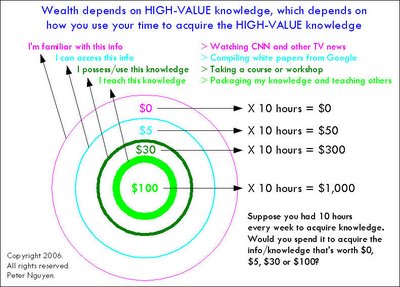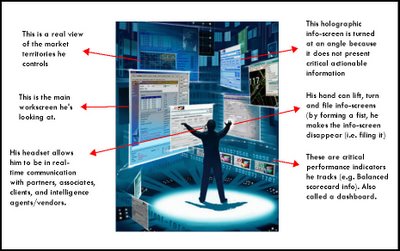There are so many freely available technologies and methodologies to create wealth today that the only remaining obstacle to financial freedom is our very own mind.
Or, to be precise, what we allow our minds to absorb, think, analyze, conclude and design.
However, the vast majority of people do not yet see HOW to create massive amounts of wealth for themselves and their families. Why?
Because of what I call small and subtle deception.
Since the dawn of civilization, the ruling elite have understood that "the secret of power is to keep power secret." (They even keep THAT statement secret -- well, now you know!).
To make SURE that the masses do not have access to power, the elite therefore have used all kinds of psychological manipulation (like inducing people to believe in the divine right of kings). With the advent of the mass media, psychological manipulation can be achieved on a massive scale.
Indeed, if the media is the message, as Marshall McLuhan prophetically submitted, what exactly is THE message? The main message to the masses is that "everything is fine, keep doing what you were doing, we (the capitalists) will get rich, you stay poor, but that's okay, that's the way it was meant to be. Nothing you can do about it. Go back to work."
That's what I call small, innocuous deception which, at the same time, has huge implications for how much wealth you can create. This very employee mentality, which Robert Kiyosaki denounces in his books, in particular Rich Dad Poor Dad, is causing otherwise creative people to stay poor.
I don't necessarily mean "money-poor," but "time-poor." You can make $90,000 a year, it doesn't mean you are time-rich. The question is, What is more important to you: how much money you accumulate in the bank, or how much free time you enjoy every day?
Is it possible that whereas before, the goal was to make a lot of money, now it is to have as much life as possible?
With the rise of alternative sources of information (such as this blogzine), the race toward financial freedom is now open to all. Business education is also more accessible. In fact, so many people around me are launching their own business, without any formal business training, that I felt it was a good idea to create a special workshop for them, if only to increase their chances of success in the tough world of business (http://businessmodelworkout.blogspot.com).
But achieving financial freedom won't be easy. It takes a lot of desire. You almost have to be "financially horny." Yes, I know that combination of words will shock people, but that is really the reality of entrepreneurship. If you don't want it bad enough, you will never get it.
It was in fact Andrew Carnegie, whose success principles are captured in the best-seller Think and Grow Rich by Napoleon Hill, who said: "The first principle of success is desire."
Yet, when you ask most people what it takes to succeed in business, they will usually answer something like "a good product" or "it takes money to make money" or "guts" etc. Nobody will answer: "You have to be really horny."
Fortunately, passion and desire are things we were born with. Just look at kids. When they want something, they want it NOW NOW NOW. They won't wait. They will nag and nag and nag until they get it.
Why did we lose that urgent sense of desire? That passion?
The good news is, it's never too late to free our minds and our hearts.
But to free your mind, as Morpheus advised Neo, you have to accept the fact that most of what you know is no longer true. This no-longer-true knowledge is what Alvin Toffler calls "obsoledge" (obsolete knowledge).
Many people think that to become rich, we have to compete against other people. In particular, compete at the intellectual level (strategy-making, product development, etc.). In other words, business as a game of "mind-to-mind combat."
However, it is becoming increasingly true that we individually also have to engage in "knowledge-to-knowledge combat," that is, pit every piece of knowledge we have against other pieces of knowledge, and only retain the superior knowledge.
This is what I've tried to do with this blogzine. I try to share only the best knowledge I have with subscribers and readers. (By the way, please feel free to share this blog with your friends and family).
In the end, the small deception and fairly innocuous falsehoods vehiculated by the mainstream media presents a great "danger" to people, because it distracts them from the real source of power -- self-knowledge.
Without self-knowledge -- that is, knowing what you are really good at, what you stand for, how you truly feel about things and people, and what purpose you think your life has -- a person can float through life and be easily manipulated psychologically to do things that only advance other people's agenda. In such a case, no personal power is ever developed and nothing important is ever achieved in one's life.



